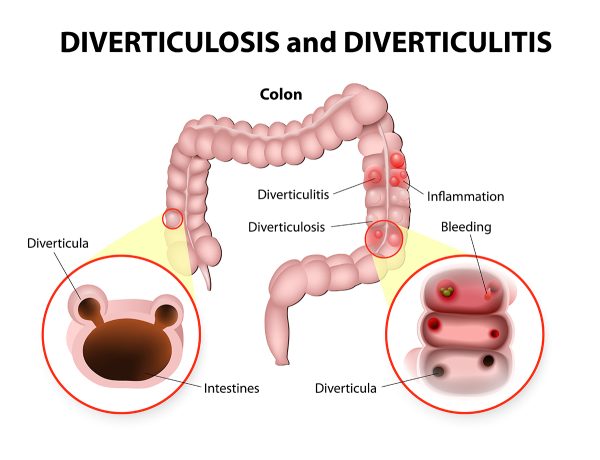Have you ever heard of diverticula? As you age, you can develop small, bulging pouches in the walls of your colon. These pouches are diverticula.
The presence of one or more diverticula is called diverticulosis. Diverticulosis is a benign, symptomless condition that does not require treatment.
Diverticulitis is a more serious condition. It occurs when the diverticula become inflamed or infected. Diverticulitis requires treatment. Mild diverticulitis treatment involves antibiotics and rest. More severe cases of diverticulitis may require surgery.
How do you even know if you have diverticulitis? Read on as the team at Piedmont Colorectal Associates discusses four signs that you may have diverticulitis.
1. Lower Abdomen Pain
Pay attention to abdominal pain. If you have lower abdomen pain, particularly on the left side, it may be a sign that you have diverticulitis. You should always see a doctor if you have persistent or severe abdominal pain.
2. Constipation or Diarrhea
Keep in mind that without treatment, the infection and inflammation will not go away on its own. This means that over time, the inflammation can lead to other health issues, including bowel obstruction. Bowel obstruction can cause all sorts of problems including constipation, bloating and stomach pain. While diarrhea is less common, it can still occur.
3. Nausea and Vomiting.
The infection and inflammation can also make you feel sick to your stomach. You should pay attention to any combination of abdominal pain accompanied by other symptoms like nausea. Nausea is more likely to occur than vomiting but both are possible.
4. Fever
Your body works hard to protect itself. That is why you often get a fever when you have an infection. The fever is your body’s way of trying to kill whatever is causing the infection. A fever makes it difficult for viruses and bacteria to survive. Pay attention to your body, especially when you have both a fever and pain.
Diagnosis
Do not wait to contact a doctor if you think you have diverticulitis. Only a doctor can diagnose diverticulitis.
How does a doctor diagnose diverticulitis? They will ask about your medical history, current symptoms and dietary habits. They will most likely conduct a physical exam to check your abdominal pain. They may also order other tests, such as a colonoscopy, to aid in their diagnosis.
Contact the Experienced Team at Piedmont Colorectal Associates
The team at Piedmont Colorectal Associates has many years of experience diagnosing and treating diverticulitis. We use the latest technology to perform robotic and minimally invasive surgeries. You can find out more about our diverticulitis services by emailing or calling our team today.


